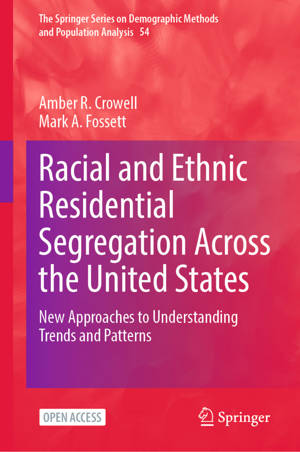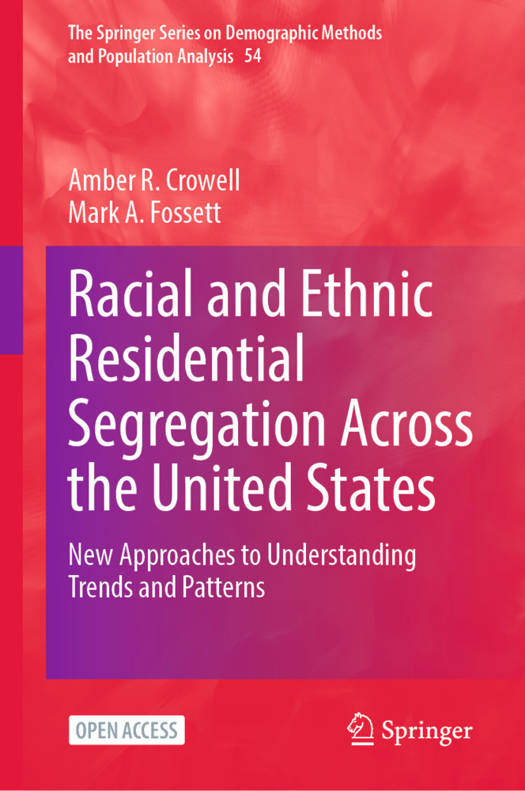
- Afhalen na 1 uur in een winkel met voorraad
- Gratis thuislevering in België vanaf € 30
- Ruim aanbod met 7 miljoen producten
- Afhalen na 1 uur in een winkel met voorraad
- Gratis thuislevering in België vanaf € 30
- Ruim aanbod met 7 miljoen producten
Racial and Ethnic Residential Segregation Across the United States
New Approaches to Understanding Trends and Patterns
Amber R Crowell, Mark A FossettOmschrijving
This open access book provides new findings on and insights into trends and patterns in residential segregation between racial and ethnic groups in the United States. It draws on new methods that make it possible to investigate segregation involving small groups and segregation patterns in nonmetropolitan communities with greater accuracy and clarity than has previously been possible. As one example, the authors are able to track residential segregation patterns across a wide selection of nonmetropolitan communities where Black, Latino, and Asian populations are small but can still potentially experience segregation. The authors also track White-Latino segregation from its inception when Latino households first arrived in non-negligible numbers in new destination communities and then document how segregation changes over time as the Latino population grows over time to become larger and more established. Finally, this work shows how segregation of Latino and Asian households is fundamentally different from that of Black households based on the much greater role that cultural and socioeconomic characteristics play in shaping White-Latino and White-Asian segregation in comparison to White-Black segregation.
Specificaties
Betrokkenen
- Auteur(s):
- Uitgeverij:
Inhoud
- Aantal bladzijden:
- 245
- Taal:
- Engels
- Reeks:
- Reeksnummer:
- nr. 54
Eigenschappen
- Productcode (EAN):
- 9783031383694
- Verschijningsdatum:
- 1/09/2023
- Uitvoering:
- Hardcover
- Formaat:
- Genaaid
- Afmetingen:
- 156 mm x 234 mm
- Gewicht:
- 544 g

Alleen bij Standaard Boekhandel
Beoordelingen
We publiceren alleen reviews die voldoen aan de voorwaarden voor reviews. Bekijk onze voorwaarden voor reviews.











